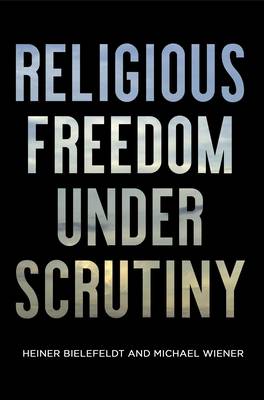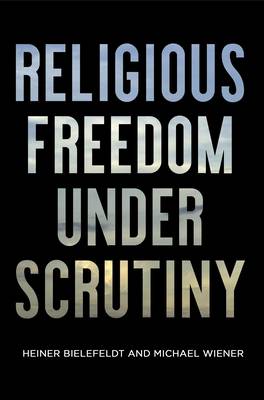
- Retrait gratuit dans votre magasin Club
- 7.000.000 titres dans notre catalogue
- Payer en toute sécurité
- Toujours un magasin près de chez vous
- Retrait gratuit dans votre magasin Club
- 7.000.0000 titres dans notre catalogue
- Payer en toute sécurité
- Toujours un magasin près de chez vous
Description
Freedom of religion or belief is deeply entrenched in international human rights conventions and constitutional traditions around the world. Article 18 of the Universal Declaration of Human Rights enshrines the right to freedom of thought, conscience, and religion as does the International Covenant on Civil and Political Rights, which the United Nations General Assembly adopted in 1966. A rich jurisprudence on freedom of religion or belief is based on the European Convention on Human Rights, drafted in 1950 by the Council of Europe. Similar regional guarantees exist in the framework of the Organization of American States as well as within the African Union. Freedom of religion or belief has found recognition in numerous national constitutions, and some governments have shown a particularly strong commitment to the international promotion of this right.
As Heiner Bielefeldt and Michael Wiener observe, however, freedom of religion or belief remains a source of political conflict, legal controversy, and intellectual debate. In Religious Freedom Under Scrutiny, Bielefeldt and Wiener explore various critiques leveled at this right. For example, does freedom of religion contribute to the spread of Western neoliberal values to the detriment of religious and cultural diversity? Can religious freedom serve as the entry point for antifeminist agendas within the human rights framework? Drawing on their considerable experience in the field, Bielefeldt and Wiener provide a typological overview and analysis of violations around the world that illustrate the underlying principles as well as the relationship between freedom of religion or belief and other human rights. Religious Freedom Under Scrutiny argues that without freedom of religion or belief, human rights cannot fully address our complex needs, yearnings, and vulnerabilities as human beings. Furthermore, ignoring or marginalizing freedom of religion or belief would weaken the plausibility, attractiveness, and legitimacy of the entire system of human rights.Spécifications
Parties prenantes
- Auteur(s) :
- Editeur:
Contenu
- Nombre de pages :
- 280
- Langue:
- Anglais
- Collection :
Caractéristiques
- EAN:
- 9780812251807
- Date de parution :
- 20-12-19
- Format:
- Livre relié
- Format numérique:
- Genaaid
- Dimensions :
- 160 mm x 231 mm
- Poids :
- 544 g

Les avis
Nous publions uniquement les avis qui respectent les conditions requises. Consultez nos conditions pour les avis.






